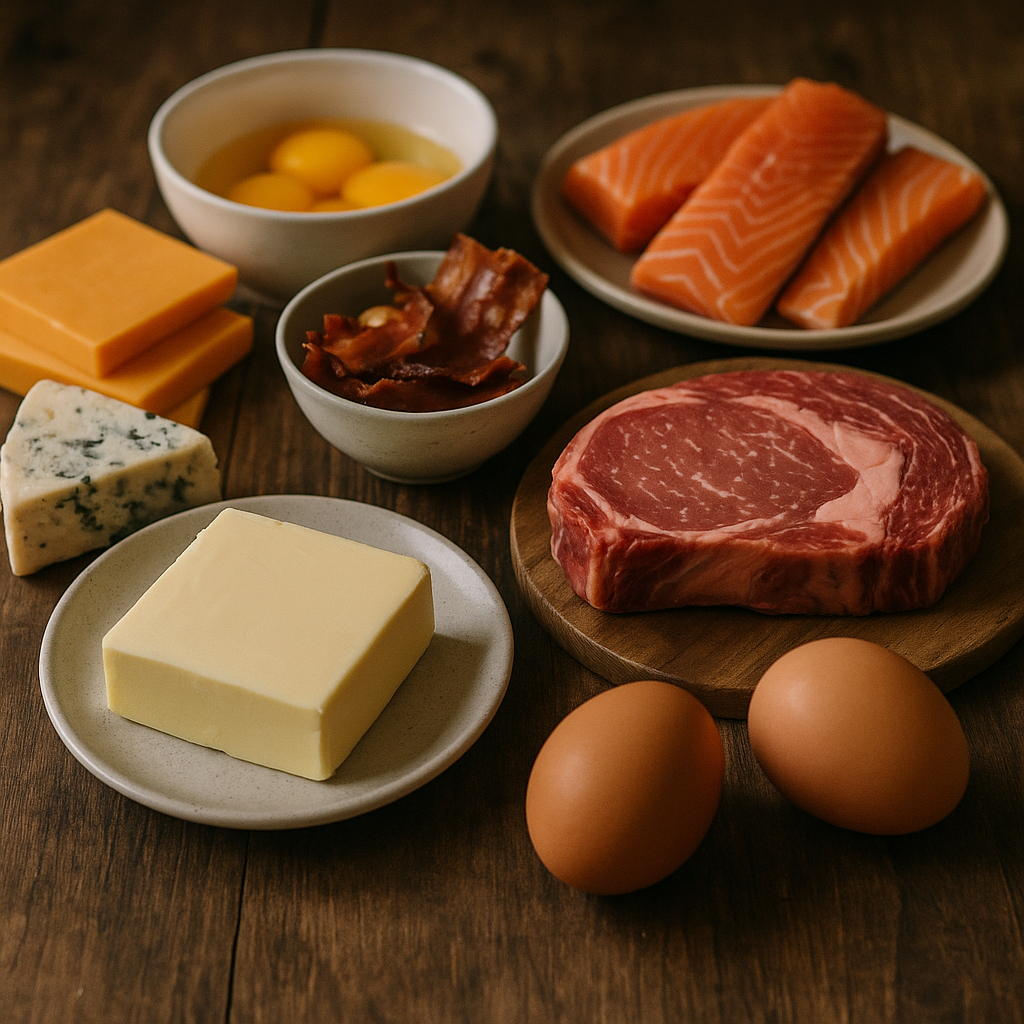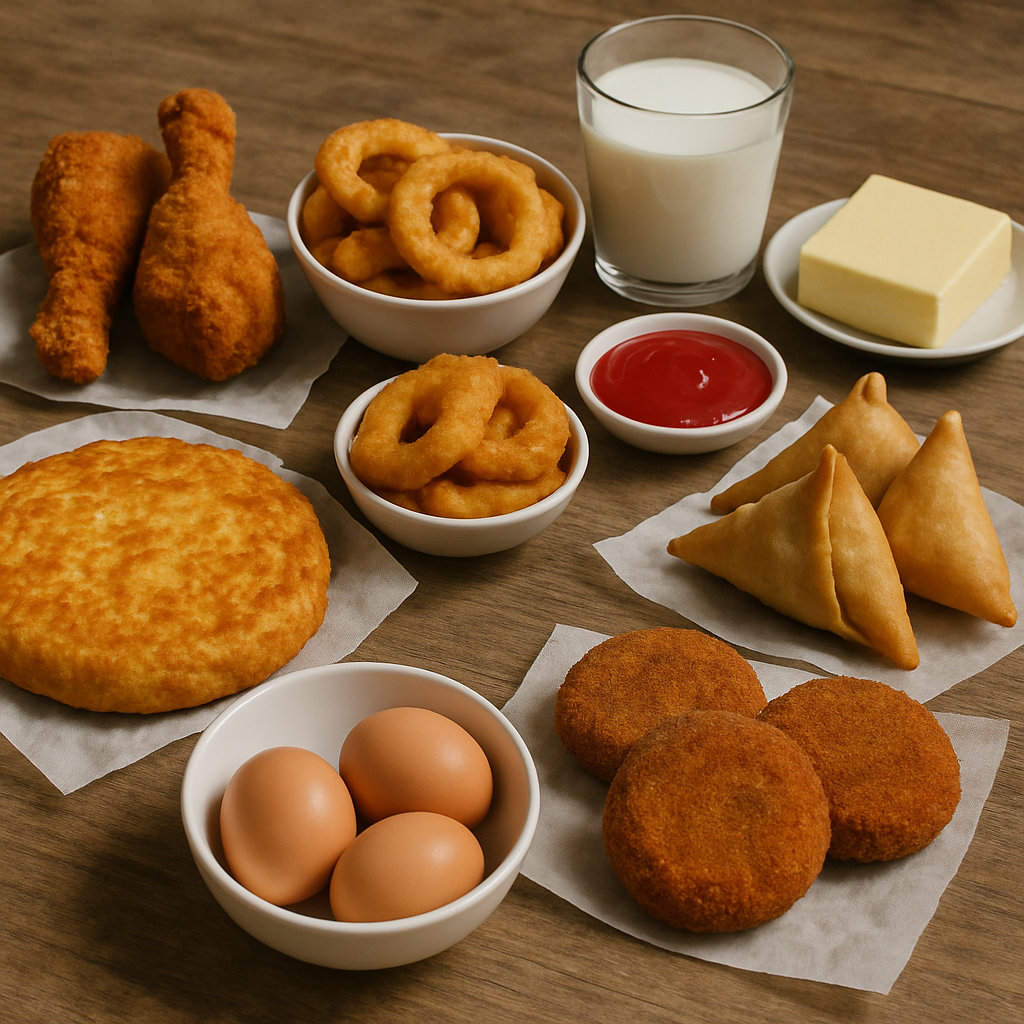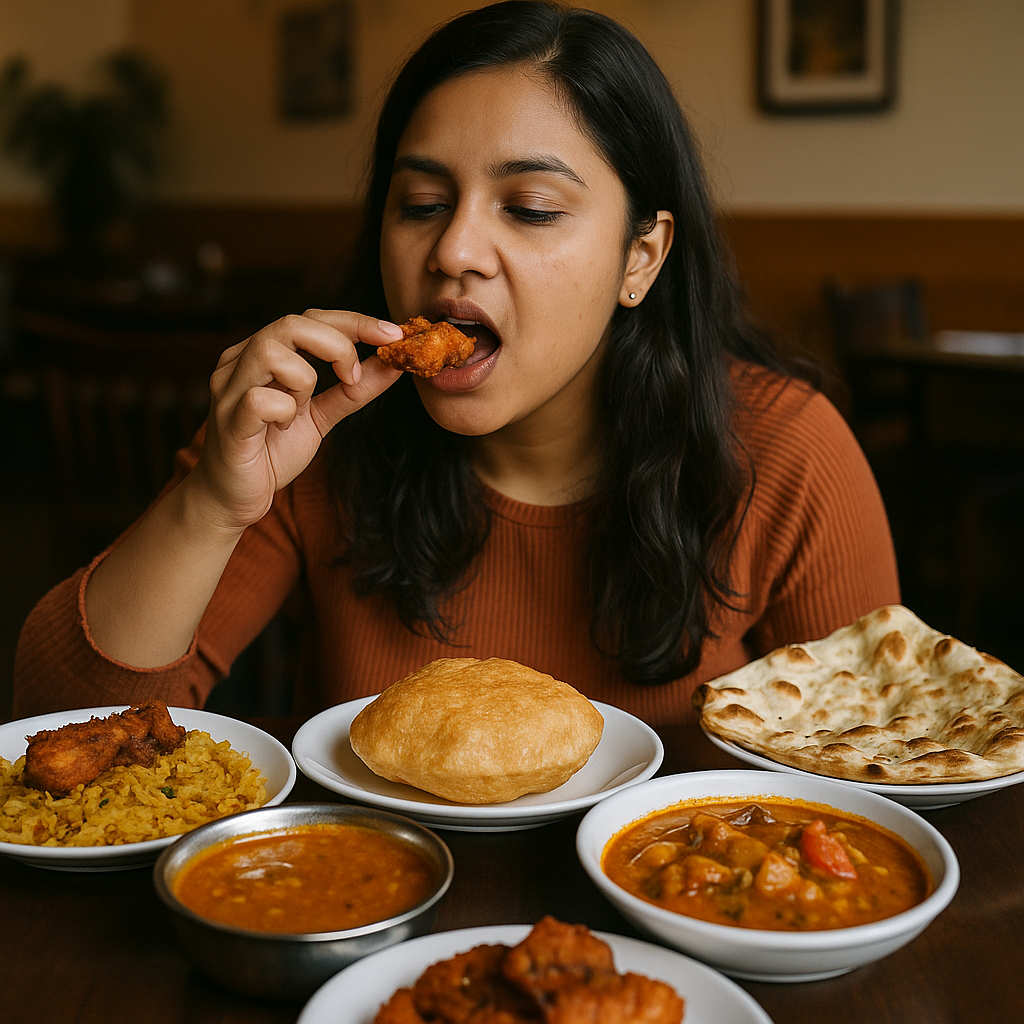Ask Ayurvedic doctor a question and get a consultation online on the problem of your concern in a free or paid mode. More than 2,000 experienced doctors work and wait for your questions on our site and help users to solve their health problems every day.
Which Food Increase Cholesterol and Should Be Avoided?

If you’re worried about your cholesterol levels, you’re not alone. Many people want to know which food increase cholesterol and how to avoid them to stay healthy. High cholesterol is a major risk factor for heart disease, so knowing high cholesterol foods and cholesterol foods to avoid can make a real difference. But it’s not just about cutting out all fats — it’s about understanding which foods raise your cholesterol the most, and how to replace them with healthier choices. This article will dive into the food which increase cholesterol level, the most common culprits, and practical tips to keep your cholesterol in check.
Many people struggle with identifying which food items increase cholesterol quickly or why some foods are more harmful than others. So, if you’re looking for a clear, easy-to-follow guide to avoid food for cholesterol, you’re in the right place. We’ll cover the high cholesterol food you find every day, why they’re bad for you, and what you can do instead.

Which Food Items Increase Cholesterol Most?
When talking about cholesterol, it’s important to differentiate between “good” and “bad” cholesterol. The type that concerns most health experts is LDL cholesterol, often called the “bad” cholesterol because it can clog arteries and increase heart disease risk. So, naturally, foods that raise LDL are the ones to watch out for.
The main cholesterol food items that increase LDL levels tend to be rich in saturated fats and trans fats. These include many animal-based products and processed foods. But there’s often confusion about which ones exactly fall into this category.
Foods like fatty cuts of meat, full-fat dairy products, and certain processed snacks are well known. But it’s surprising how many popular foods sneak into the “high cholesterol food” category without us realizing. To make it clearer, we’ll list the main offenders below.

Don't wait or self medicate. Start chat with Doctor NOW
List of High Cholesterol Foods to Watch Out For
Cholesterol Food List: Common Offenders
Here’s a list of some of the cholesterol food items that people commonly consume but should really avoid or limit:
-
Red meat: Beef, lamb, and pork are high in saturated fats, which increase cholesterol.
-
Full-fat dairy: Cheese, butter, cream, and whole milk are packed with saturated fats.
-
Egg yolks: Though rich in nutrients, egg yolks have a high cholesterol content.
-
Organ meats: Liver and kidneys are incredibly high in cholesterol.
-
Shellfish: Shrimp and lobster also contain more cholesterol than you might expect.
High Cholesterol Food Items Found in Daily Diet
Many of us eat high cholesterol foods without realizing it. Take fast food, for example. Burgers, fried chicken, and fries are often deep-fried in oils loaded with trans fats — which are some of the worst fats for your cholesterol levels.
Processed meats such as sausages, hot dogs, and bacon are packed with both saturated fat and cholesterol. Eating these regularly can spike your LDL levels fast.
Even baked goods like pastries, cookies, and doughnuts often contain trans fats or hydrogenated oils, which dramatically affect cholesterol in a negative way.

Cholesterol Foods to Avoid to Lower Risk
Avoiding cholesterol food to avoid might sound repetitive, but it's essential for managing your cholesterol levels effectively. The main ones to cut back on include:
-
Fried foods (because of both saturated fats and trans fats)
-
Processed snacks and baked goods (hidden trans fats)
-
High-fat dairy and fatty meats
-
Foods cooked with a lot of butter or lard
Avoiding these foods doesn’t mean you have to live on bland meals forever — more on tasty, healthy substitutes later!
Processed and Fried Food High in Cholesterol
One of the biggest culprits for high cholesterol is processed and fried food. These are often loaded with unhealthy fats that increase LDL cholesterol dramatically. When foods are fried repeatedly, the oils degrade and form harmful trans fats.
Think about that favorite fried chicken or crispy fries — they might be delicious, but they’re a nightmare for cholesterol. Also, many frozen or packaged fried foods come with added preservatives and fats, adding to the cholesterol load.

What Makes a Food High in Cholesterol?
You might wonder, what exactly makes a food high in cholesterol? Well, cholesterol itself is a type of fat found in animal-based foods. So, foods that come from animals tend to have cholesterol. But that’s not the whole story — fats play a huge role too. Saturated fats and trans fats, found in many animal products and processed foods, cause your liver to produce more LDL cholesterol, the “bad” kind.
Interestingly, plant-based foods don’t contain cholesterol, but some of them can be high in saturated fats (like coconut oil), which also affect cholesterol levels indirectly. So, it’s a mix of the cholesterol content itself and how fats in the food influence your body’s cholesterol production.
In general, food high in cholesterol tends to be rich in saturated fats, trans fats, or both. These types of fats are the ones that raise your LDL cholesterol and should be limited in your diet.
Healthy Eating Tips to Control Cholesterol Naturally
Managing cholesterol isn’t just about avoiding certain foods; it’s about making smarter choices every day. Here are some practical tips to control cholesterol naturally without feeling deprived:
-
Eat more fiber-rich foods. Soluble fiber, found in oats, beans, fruits, and vegetables, helps reduce LDL cholesterol by binding to it and removing it from the body.
-
Choose healthy fats. Swap out butter and lard for olive oil, avocado, or nuts, which can actually improve your cholesterol profile.
-
Limit red meat and processed meats. Instead, go for lean protein sources like chicken, fish, or plant-based proteins.
-
Cut back on fried and processed snacks. These are often loaded with trans fats, which spike cholesterol quickly.
-
Stay active and maintain a healthy weight. Diet alone isn’t enough; regular exercise can help raise HDL (“good” cholesterol) and lower LDL.
Ayurvedic Guidelines on Avoid Food for Cholesterol
If you’re curious about natural, traditional ways to manage cholesterol, Ayurveda offers some useful guidelines. According to Ayurvedic principles, balancing your diet and lifestyle is key. Here are a few Ayurvedic tips on avoid food for cholesterol:
-
Reduce intake of heavy, oily, and fried foods.
-
Avoid excessive consumption of red meat and dairy.
-
Incorporate herbs like turmeric and fenugreek, which are believed to support healthy cholesterol.
-
Focus on a diet rich in fresh vegetables, whole grains, and legumes.
-
Stay hydrated and practice mindful eating.
These guidelines might not replace medical advice but can definitely complement a heart-healthy lifestyle.
Substitutes for Food Which Increase Cholesterol
Cutting out your favorite cholesterol foods to avoid can be challenging, but luckily, there are plenty of delicious substitutes. Here are some swaps that help reduce cholesterol without sacrificing flavor:
-
Instead of fatty red meat, try grilled chicken breast or fish like salmon or mackerel rich in omega-3.
-
Use plant-based milk alternatives such as almond or oat milk instead of whole milk.
-
Replace butter with olive oil or avocado spread.
-
Swap fried snacks for air-popped popcorn or roasted nuts.
-
Try egg whites or egg substitutes instead of whole eggs if you’re worried about cholesterol.
By making these simple changes, you can keep your meals tasty and heart-friendly.
Conclusion
Knowing which food increase cholesterol and which to avoid is crucial for maintaining heart health and preventing serious conditions like heart attacks or strokes. This article covered a wide range of high cholesterol foods, from everyday meats and dairy to hidden culprits in processed and fried foods. By recognizing the cholesterol food items that raise your LDL levels, you can make smarter choices and keep your cholesterol under control naturally.
Remember, it’s not just about what you cut out but also what you add to your diet. Incorporating fiber-rich foods, healthy fats, and plant-based alternatives will make a huge difference over time. Plus, small lifestyle changes, like exercising regularly and following guidelines from both modern science and traditions like Ayurveda, help you stay on track.
Your heart deserves this kind of care — so take a good look at your plate and ask yourself: Am I eating foods that increase cholesterol unnecessarily? If yes, then it’s time for a change.
FAQs
Which food items increase cholesterol quickly?
Foods high in saturated and trans fats, such as fried fast food, processed meats, and full-fat dairy products, tend to raise cholesterol levels the fastest. These foods promote LDL cholesterol buildup and should be limited.
How much cholesterol per day is considered too much?
Health experts generally recommend keeping dietary cholesterol intake below 300 mg per day for most people, and under 200 mg for those with high cholesterol or heart disease risk. However, recent studies emphasize the quality of fats over cholesterol alone.
Do nuts and seeds increase cholesterol?
No, nuts and seeds are actually beneficial for cholesterol management. They contain healthy fats, fiber, and plant sterols that can help reduce LDL cholesterol. Just watch portion sizes, since they are calorie-dense.
How to identify food which increases cholesterol in packaged products?
Check the nutrition labels for saturated fat and trans fat content. Ingredients like “partially hydrogenated oils” indicate trans fats, which are harmful. Also, look for cholesterol amounts listed and opt for foods low in these components.
If you want to take control of your cholesterol levels, start by revisiting your shopping list and cooking habits. Focus on whole, minimally processed foods and avoid those cholesterol food to avoid. Share this article with your friends and family so they can protect their heart health too. Remember, small changes lead to big results!

